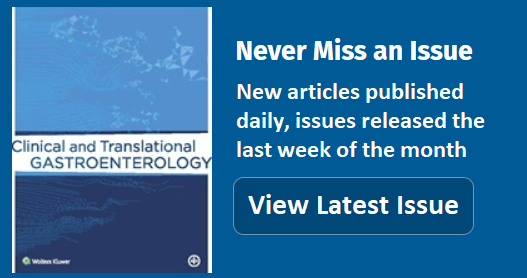Clinical and Translational Gastroenterology Peer Review Change
Starting in January 2022, we are excited to announce that Clinical and Translational Gastroenterology (CTG) will transition from a single-blind to a double-blind peer review system.
Previously, CTG used a single-blind system where the reviewers’ identity was unknown to the authors but the authors’ identity was known to the reviewers. Authors and reviewers will both be blinded moving forward so that the manuscript is evaluated by content only. Proponents of the double-blind review process suggest that it is a more impartial process that limits biases and results in high-quality peer review. Reviewers will still be able to claim CME credit for their work, as the editors are not blinded to either the authors’ or reviewers’ identity.
Authors are now instructed to submit a separate title page and ensure there is no identifying information in the main text of the manuscript. Due to the importance of transparency for proper study clearances, authors should indicate IRB approval on the title page and include a statement of IRB approval that does not reveal the institution. However, this information will be published in the final article.
Read the editorial by Editor-in-Chief Brian C. Jacobson and Associate Editor Eugenia Shmidt in the January issue which outlines how the CTG Editorial Board came to the decision of moving to a double-blind peer-review system. As noted in the published piece, the editors realize the change may be challenging, and encourage feedback from both our authors and reviewers in an effort to continuously improve the journal’s processes.
Feedback can be submitted to journals@gi.org





